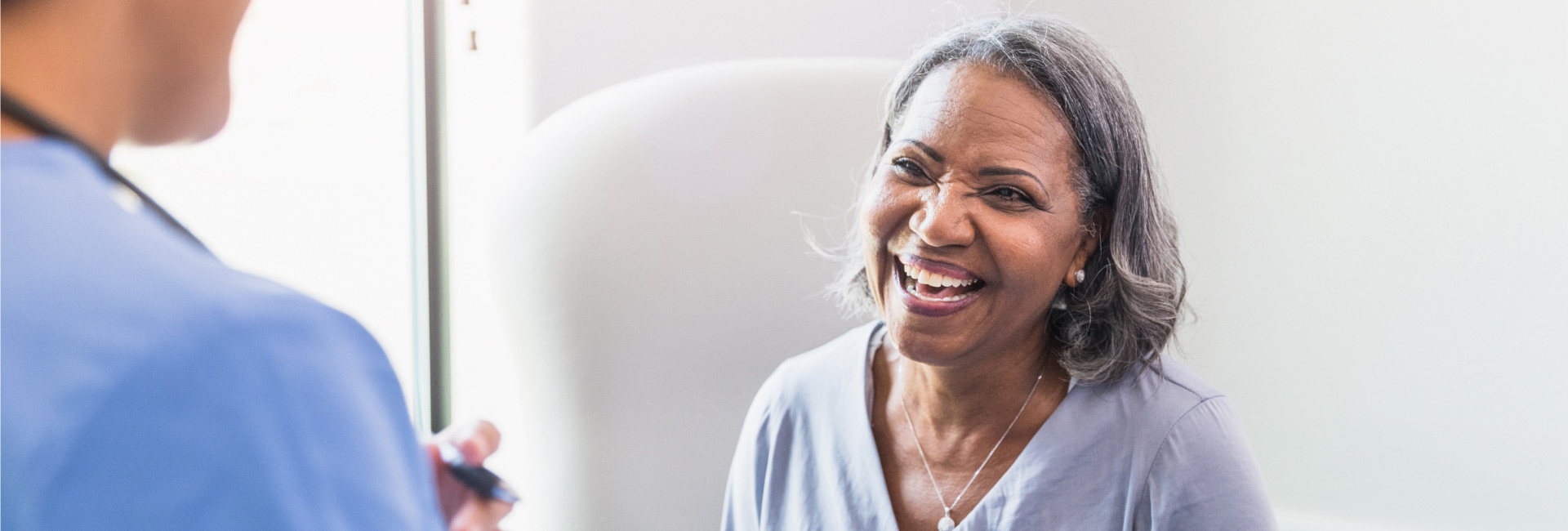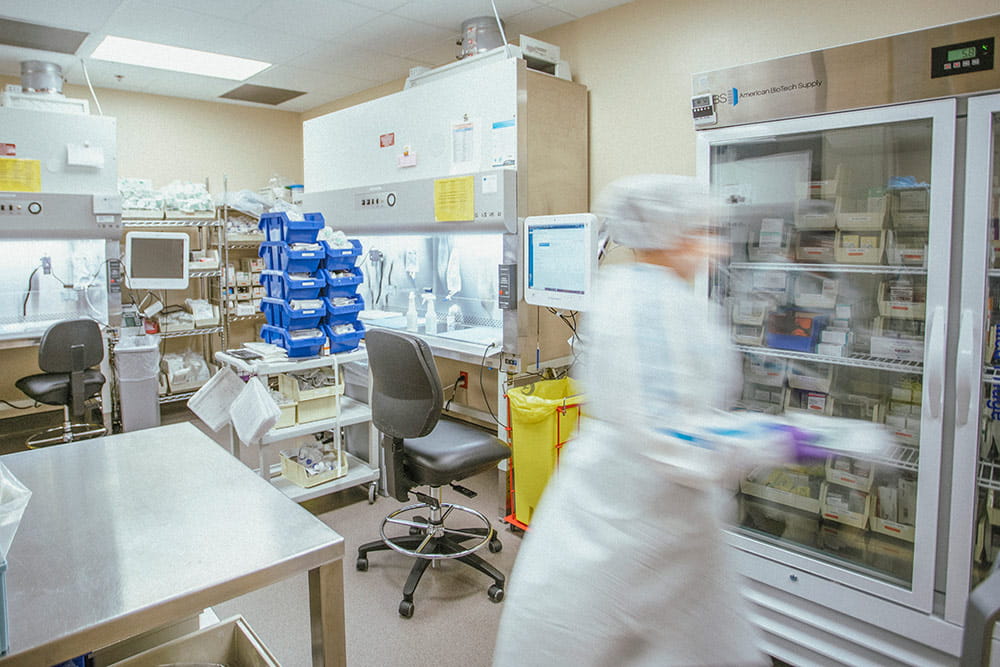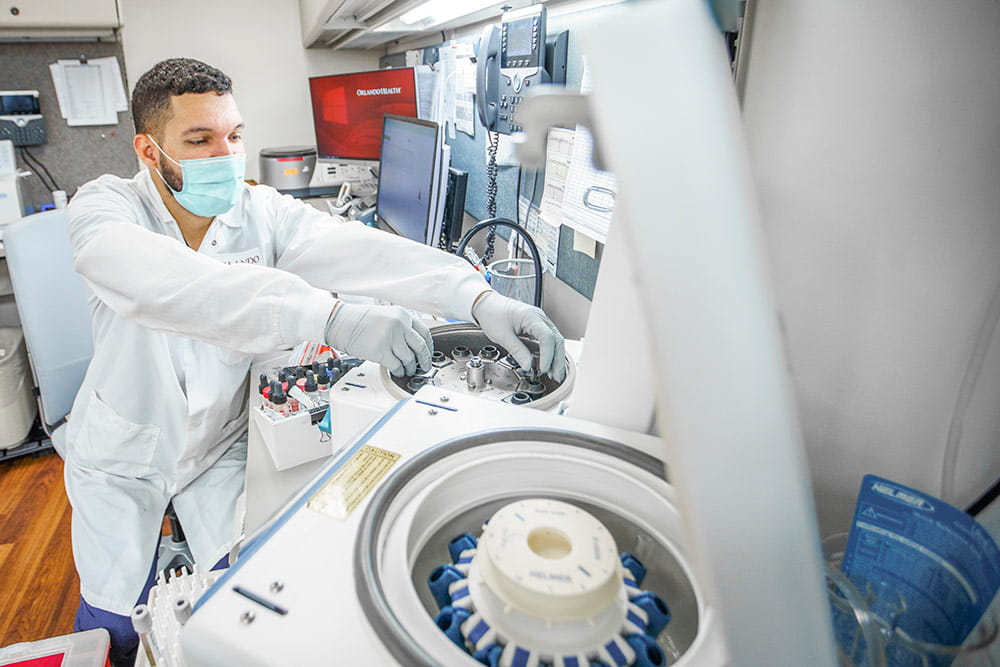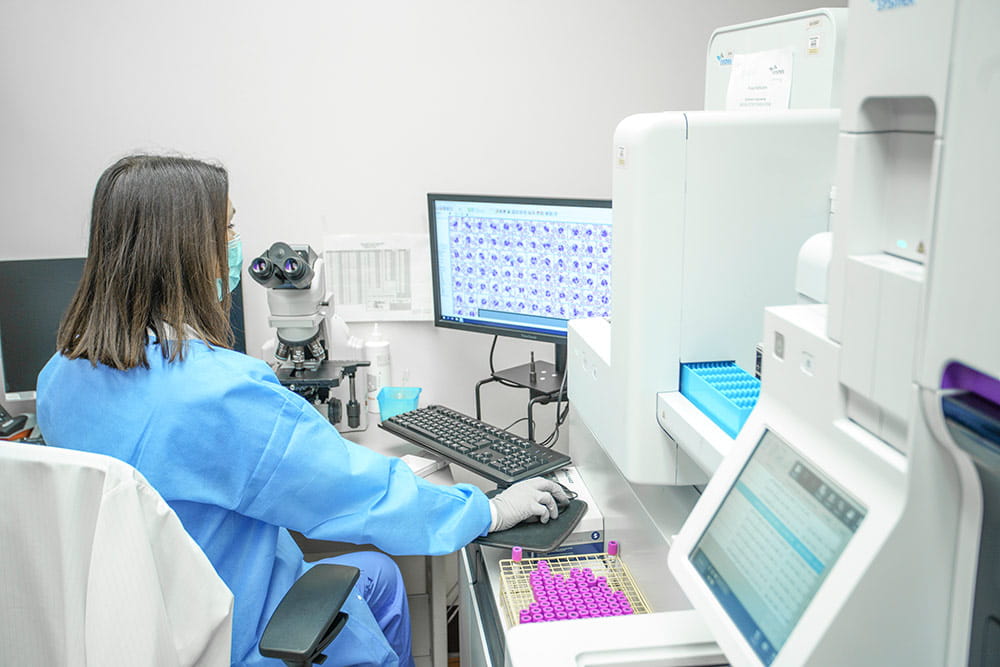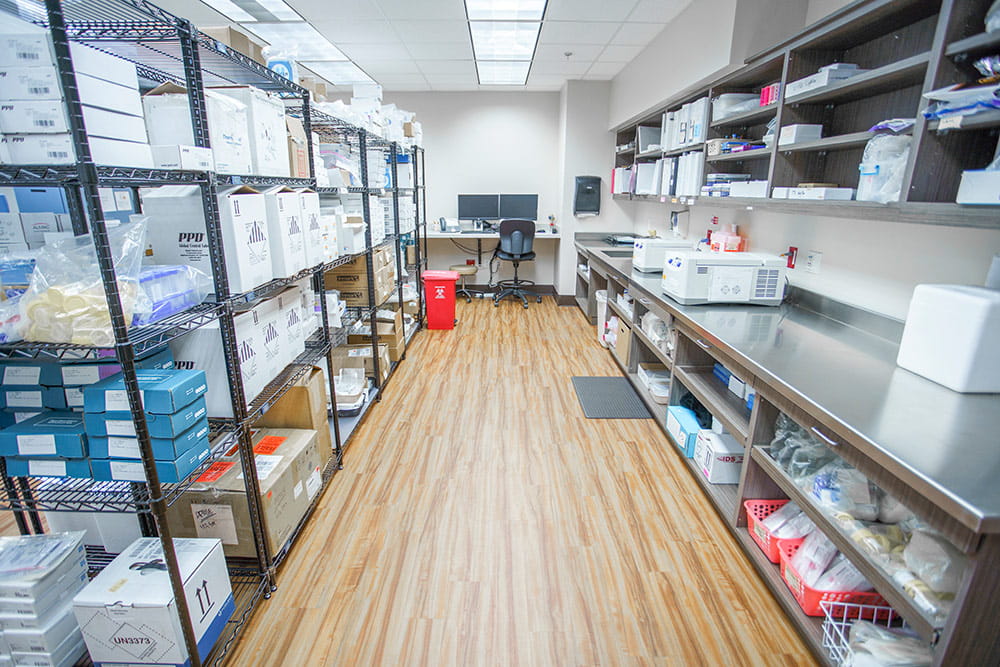About Clinical Trials
Clinical trials are studies that are important in cancer care for discovering new therapies and treatments, as well as new ways to detect, diagnose and reduce the chance of developing cancer. The ultimate goal of clinical trials is to improve the lives of our patients. Trials involve collaboration across multiple departments, with researchers involved in design, testing and analysis of these studies.
Orlando Health Cancer Institute Research & Clinical Trials Program focuses on trials designed to assess a wide range of cancer-fighting options. We strive to improve our standards of care and patient outcomes through medications, therapies, genetics, diet and better screening. The goal is to find better ways to:
- Prevent cancer
- Diagnose cancer
- Treat cancer
- Reduce side effects of cancer treatments and symptoms of cancer
New treatments follow strict guidelines and must be approved by the U.S. Food and Drug Administration (FDA) before they are made available for standard use. Clinical trials are a key part of that process.
Why Orlando Health?
Through clinical trials, Orlando Health Cancer Institute offers faster access for patients eager to try promising new tools in the battle against cancer.
We have more than 150 active trials, with more than 50 currently enrolling new patients. Each of them has been reviewed by internal committees and institutional review boards to ensure we are offering the most scientifically appropriate, safe and effective clinical trials.
Different Types Of Clinical Trials
Most clinical trials fall into this group. They’re designed to test new treatments or novel uses for existing treatments on cancer patients. Often, these trials involve genetic testing of tumors. Goals include finding safe doses for new treatments, identifying side effects, determining treatment delivery options and assessing whether quality of life is improved.
These studies use devices such as machines, instruments, and materials. Often these trials are checking the safety and performance of a device. Devices are used to assist in or diagnose, prevent or treat diseases.
These studies focus on healthy people and reducing cancer risk. Participants are sometimes former cancer patients at risk for developing new cancers. They generally fall into two types: action studies, which look at whether certain activities reduce risk; and agent studies, which examine the impact of medicines, vitamins and other dietary items.
The earlier a cancer can be identified, the easier it is to treat it. These trials focus on diagnosing cancer before symptoms arise, determining which tests are best and whether screenings lead to unnecessary procedures.
These trials focus on helping people live with cancer and the side effects of treatments used to fight it. Researchers look at a range of options, including depression medications, counseling and exercise. Some trials also explore the impact of cancer on family members and caregivers.
These studies examine patients – and people at high risk of getting cancer – over long periods of time. Researchers look at a range of factors, including family medical history and genetics. They hope to better understand how specific cancers form and evolve.
For more specific information or guidelines on these types of trials, please visit the National Cancer Institute.
More About Clinical Trials
A clinical trial is a type of research that helps us learn about benefits and risks associated with promising new treatments. Every clinical trial has risks, often related to the overall health of participants and the type of treatment being studied.
Benefits
- Patients play an active role in their own health care.
- Trials offer early access to treatments not yet available to everyone.
- Patients gain access to expert medical care at Orlando Health during the trial.
- Patients can help others by contributing to medical research.
Risks
- There are no guarantees a treatment in a clinical trial will help your medical condition.
- Treatments can cause side effects and other health risks.
You always make the final decision about participating in clinical trials. You will not be asked to take part until you understand all potential risks and benefits. And you have the right to stop participating at any time and for any reason.
Our Team
Orlando Health Cancer Institute has built a research and clinical trials team dedicated to developing new and innovative healthcare options of diagnosing and treating cancer. The team has conducted hundreds of research studies and clinical trials focused on a wide range of promising cancer therapies.
Our Clinical Trials Lab
Navigate Your Health


Find a Cancer Physician
Find a Cancer Physician
Meet our doctors who specialize in the full range of cancer care. Our team of experts has experience in a variety of specialty areas. Together, we provide comprehensive evaluation, diagnosis and treatment options.
Learn More

Patient Portal
Patient Portal
If you are a patient at Orlando Health Cancer Institute, our free online patient portal provides an easy and secure way to manage your health information. Reach us from any location at a time that’s convenient for you.
Learn More

Virtual Visit
Virtual Visit
Need to talk with a doctor, but don’t want to leave your home? Try our virtual visit (telehealth) option to connect with a physician from your phone, tablet or computer.
Learn More

